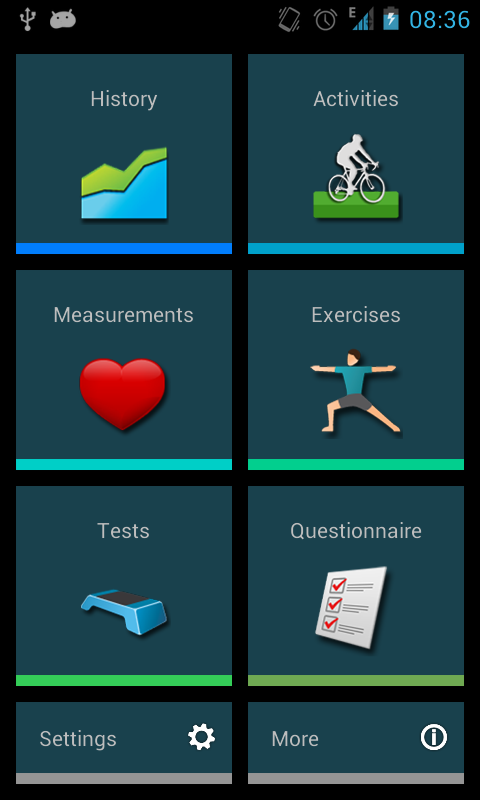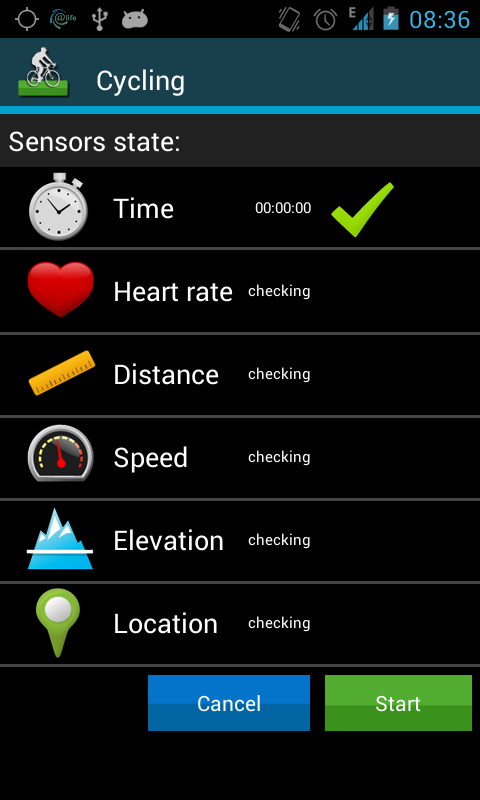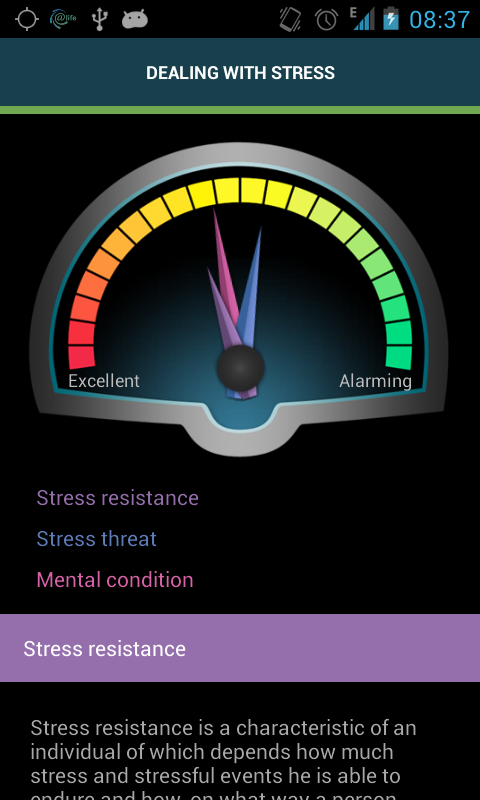ICT solutions can help improve the quality of life for everyone. In order to develop truly innovative solutions, it’s important to establish inter- and cross-disciplinary project teams. The @Life team consists of experts from different domains (kinesiology, psychology, medicine, informatics) both from academia as well as from industry. The consortium has been organised within the scope of the Research & Development Center RC IKTS Savinja, which was established in 2011. One of the first joint international R&D projects, known as @Life, is aimed at developing a solution to stress management.
Mobile @Life solutions run on the Android and iOS platform and enable users to collect different information using built-in sensors as well as via Bluetooth, WiFi and other widely supported communication protocols. The collected data, such as GPS coordinates, R-R intervals of the heart beat and blood pressure measurement data are instantly processed in the smart phone to provide easy-to-understand feedback for the end user. Furthermore, the mobile application supports the presentation of different exercises such as adaptable video streaming, audio streaming, animations or rich text with graphics.



The @life solution also leads the user through four main steps to a final goal: better well-being and health. It allows for the daily monitoring of physical parameters and the regular implementation of sport exercises and psychological techniques. Activities can be logged using a mobile phone or other device that enables you to monitor workouts and body conditions. Based on the implementation of the program, the system keeps a diary and simultaneously provides a graphical representation of progress, which is based on proven methods from psychology, medicine and kinesiology.

Within @Life, data is being collected and integrated for the collection, analysis and prediction of psycho-physical and psycho-sociological factors that influence one’s quality of life. Since the aim of the project is to provide users with easy–to-understand information about their physical and psychological state, as well as to encourage them to actively improve their quality of living, new visualization techniques are being researched for the efficient presentation of complex data, information and knowledge. New intelligent techniques for visualizing complex data will be addressed as well as the development of enabling approaches for a balanced overview of complex data, both from the point of view of scientific efficiency as well as the improvement of the user’s experience and the enabling of an adequate level of cognitive load.

